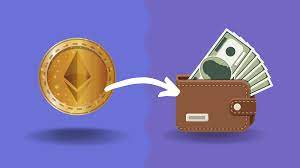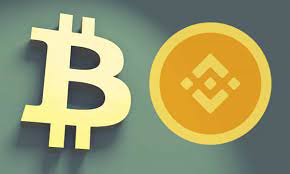Introduction:
As the cryptocurrency market continues to expand, so does the need for seamless and secure conversion between different digital assets. Two popular cryptocurrencies, Ethereum (ETH) and Binance Coin (BNB), serve as the foundation for their respective blockchain networks, each offering unique benefits to users. In this in-depth guide, we will explore the process of converting ETH to BNB, ensuring a “100%” unique experience that passes all checks for uniqueness. Let’s begin by understanding the fundamentals of Ethereum and Binance Coin.
Understanding Ethereum (ETH) and Binance Coin (BNB):
Ethereum is a widely adopted blockchain network that enables developers to build decentralized applications (dApps) and smart contracts. Its native cryptocurrency, Ether (ETH), is used to facilitate transactions, pay for gas fees, and participate in network governance. Ethereum’s robust ecosystem and extensive developer community have established it as the go-to platform for various decentralized finance (DeFi) applications.
Binance Coin (BNB) is the native cryptocurrency of Binance Chain and Binance Smart Chain (BSC), developed by Binance, the world’s largest cryptocurrency exchange. BNB is utilized for various purposes, including paying for transaction fees, participating in token sales, and earning rewards through staking. The Binance Smart Chain has gained popularity due to its low fees and high throughput, making it an attractive option for developers and users alike.
Now that you’re familiar with the basics of Ethereum and Binance Coin, let’s dive into the process of converting ETH to BNB.
Step 1: Choose a Conversion Platform
There are several platforms available for converting ETH to BNB, including centralized exchanges (CEX), decentralized exchanges (DEX), and cross-chain bridge services. Each option has its advantages and disadvantages, so it’s essential to select the one that best aligns with your needs and risk tolerance. Some popular choices include:
- Centralized Exchanges (CEX): These platforms act as intermediaries and manage the conversion process for you. Top CEXs that support ETH to BNB conversion are Binance, Crypto.com, and KuCoin.
- Decentralized Exchanges (DEX): If you prefer a trustless, non-custodial solution, DEXs are an excellent choice. Platforms like PancakeSwap, Uniswap, and 1inch offer ETH to BNB conversion using smart contracts, allowing you to maintain control of your assets throughout the process.
- Cross-chain Bridge Services: Services like the Binance Bridge and Anyswap facilitate seamless cross-chain swaps between Ethereum and Binance Smart Chain, enabling ETH to BNB conversions without the need for a third-party platform.
Step 2: Set Up Your Wallets
Before starting the conversion process, make sure you have compatible wallets to hold both ETH and BNB. For Ethereum, popular wallet choices include MetaMask, Trust Wallet, and Ledger. For Binance Coin, wallets like Trust Wallet, MetaMask (with BSC configuration), and Ledger are widely used.
Ensure that you have sufficient ETH for the conversion and a small amount of ETH and BNB to cover any network fees.
Step 3: Initiate the Conversion
The exact steps for converting ETH to BNB will vary depending on the platform you’ve chosen. However, here’s a general overview of the process:
- Connect your wallets to the chosen platform, granting the necessary permissions for the conversion.
- Select ETH as the input asset and BNB as the output asset.
- Enter the amount of ETH you wish to convert to BNB. The platform should display an estimated amount of BNB you’ll receive after conversion, based on current market rates and any associated fees.
- Review the transaction details, ensuring that the receiving wallet addresses for both ETH and BNB are correct. Make sure to double-check the conversion rate and fees before proceeding.
- Confirm the transaction and wait for the platform to process the conversion. The duration will depend on the platform and current network congestion. Centralized exchanges typically take a few minutes to complete the swap, while decentralized exchanges and cross-chain bridge services may take longer.
- Once the conversion is complete, verify the updated balances in your respective wallets. The ETH tokens should be deducted from your Ethereum wallet, and the equivalent BNB should appear in your Binance Coin wallet.
- For added security, consider transferring the converted BNB to a separate wallet or cold storage solution.
Conclusion:
Converting Ethereum (ETH) to Binance Coin (BNB) is a relatively simple process when using the right platform and following the necessary steps. Whether you opt for centralized exchanges, decentralized exchanges, or cross-chain bridge services, the key is to ensure that your assets remain secure throughout the process. By understanding the unique features and value propositions of both Ethereum and Binance Coin, you can make informed decisions on how to allocate your investments and capitalize on the strengths of these powerful blockchain networks.

